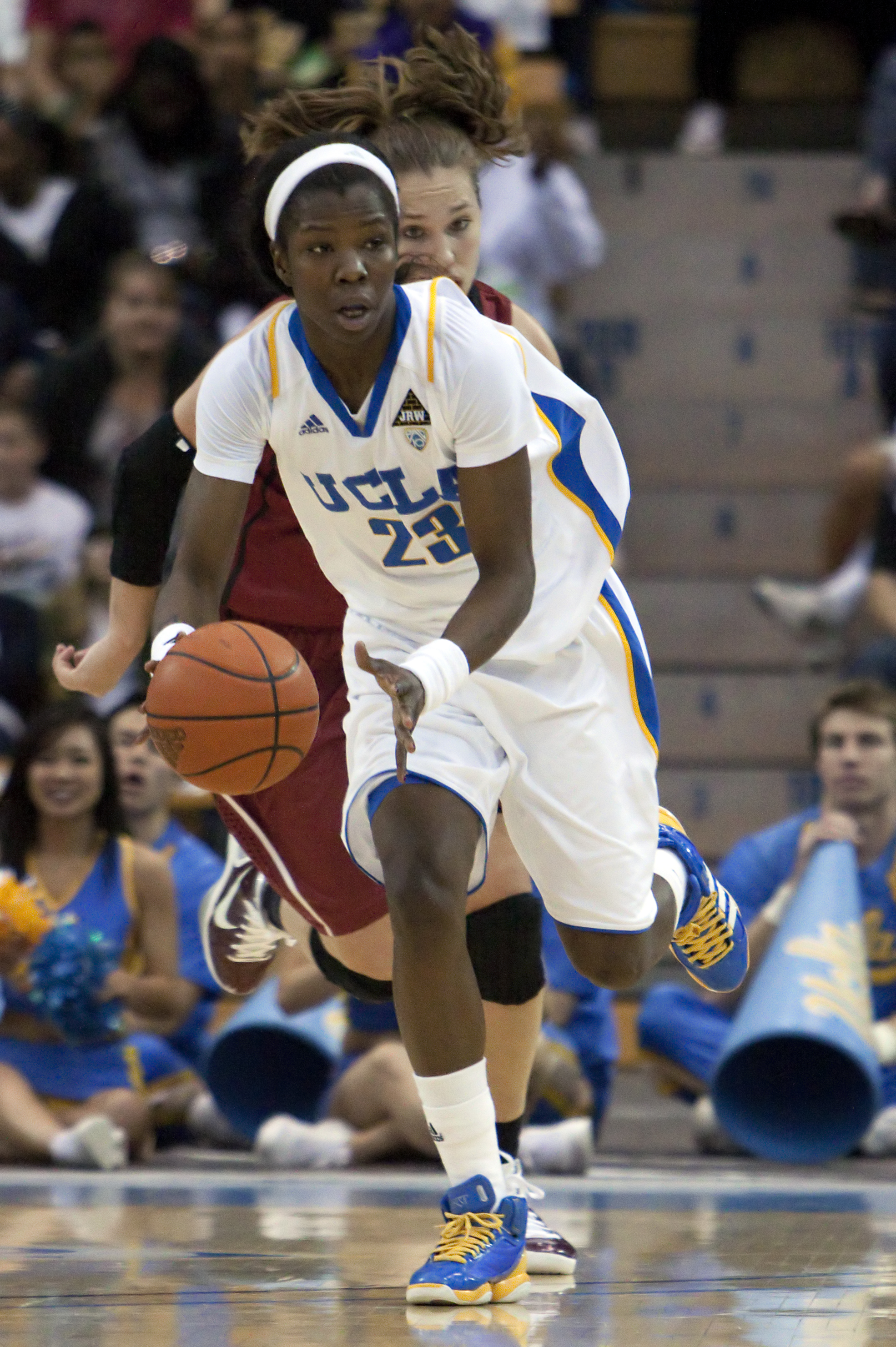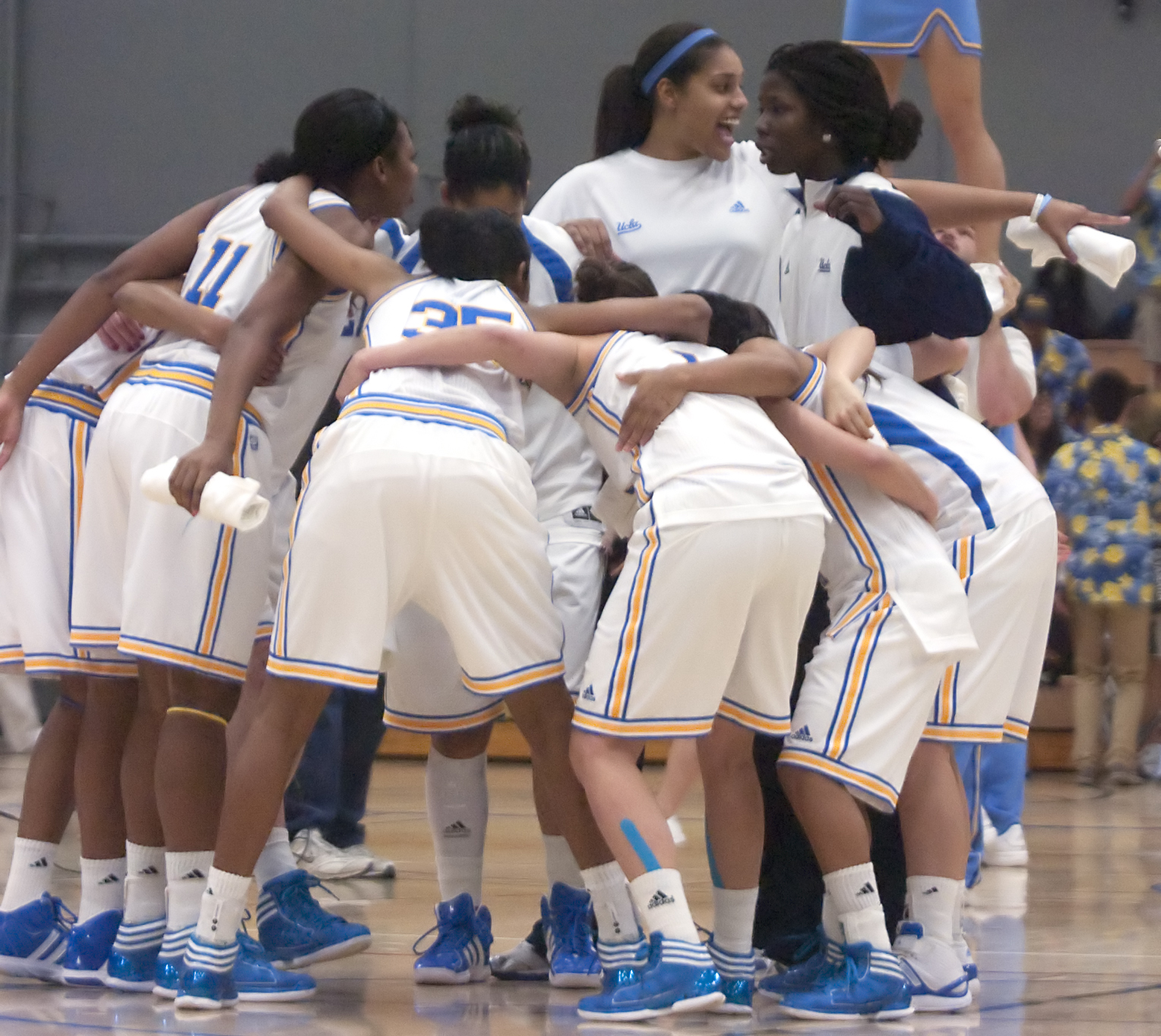
Junior guard Markel Walker, shown here in a game against Stanford last year, has recently returned to the lineup.
When coaches draw up plans and strategies at the beginning of a season, the one thing they can never account for is injuries.
Unless a team is particularly blessed with incredible depth, an injury to an important contributor can utterly derail a game, a season, even a career.
To make matters worse, injuries often seem to be a game of luck ““ sometimes you beat the dealer hand after hand, and sometimes you bust.
And, unfortunately, the UCLA women’s basketball team (7-8, 2-2 Pac-12) has hit more than its share of busts this season.
“It’s not easy. It’s been a very difficult transition,” coach Cori Close said at practice Tuesday. “It’s really hard to develop a chemistry on the court that you can count on (when key players are injured).”
This season has certainly not gone the way Close might have anticipated or desired in her inaugural season with UCLA.
The Bruins began the season missing star senior forward Jasmine Dixon, out for the season with a ruptured Achilles’ tendon, and junior guard Markel Walker, out for an extended period of time with a thumb injury.
The latest victims to injury are Atonye Nyingifa, out for the remainder of the season with a torn ACL suffered against Tennessee, and freshman guard Moriah Faulk, whose status is undetermined after an apparent knee injury against Arizona State Saturday.
The loss of Nyingifa is significant, as she had been filling in for the already-injured Dixon, and the team had begun to develop as a unit.
“As much as we had a tough December, I thought we played really well against Tennessee,” Close said. “Then we had to react to losing our best player in Atonye. … I’m still figuring it out, to be honest with you.”
Adjusting to hardship
There are plenty of appropriate cliches that describe UCLA’s struggles but for Close, it is a reality with which she and her team must deal.
“Everybody has to step up, from the freshmen, to the sophomores, to the juniors, to the seniors,” Walker said. “Everybody has to give a little bit extra. And even though Thea Lemberger and Rebekah Gardner have been carrying the load, everyone has to step it up another level.”
Getting Walker back from injury is one positive the team can turn to in recent days.
But even that requires adjustment for a team in flux.
“Markel is an incredibly versatile, smart basketball player,” Close said. “But I think it’s taken us some time to figure out how we’re going to be able to give her the best touches. When she was out those first few games, and then you enter her back in the middle of the season … it takes a few games to find that niche.”
Beyond simple game management and strategy, injuries obviously have huge effects on the individual players.
Even after coming back, players may not be able to do exactly what they could before, especially right away. With Walker, her thumb injury still affects her game.
“I do play with something on my thumb, to limit my range of motion,” Walker said. “I just try to not let that get to me and focus on the game. Sometimes I forget that I even have something on my thumb.”
Silver linings
It seems unlikely that benefit could be squeezed out of multiple season-ending injuries, and several lesser ones, but Close has no choice but to find positives for this team.
“I think the one thing, if you really want to turn the perspective, is that everyone knows they have to show up,” Close said. “There is no one else. Every single person has to be counted on to play their role. … Every person needs to be very responsible, and I think having the lack of depth forces that urgency and to show up every day.”
Staying positive during a run of bad luck is a hard task, and one that falls on both the coach and players.
Sophomore guard Thea Lemberger has risen up during hard times, taking leadership roles on and off the court.
“This year has been a lot to deal with, losing three players, and on-and-off injuries to other players,” Lemberger said. “We’ve definitely been sticking together and trying to stay positive. Working together is not really an option; it’s something we must do.”
